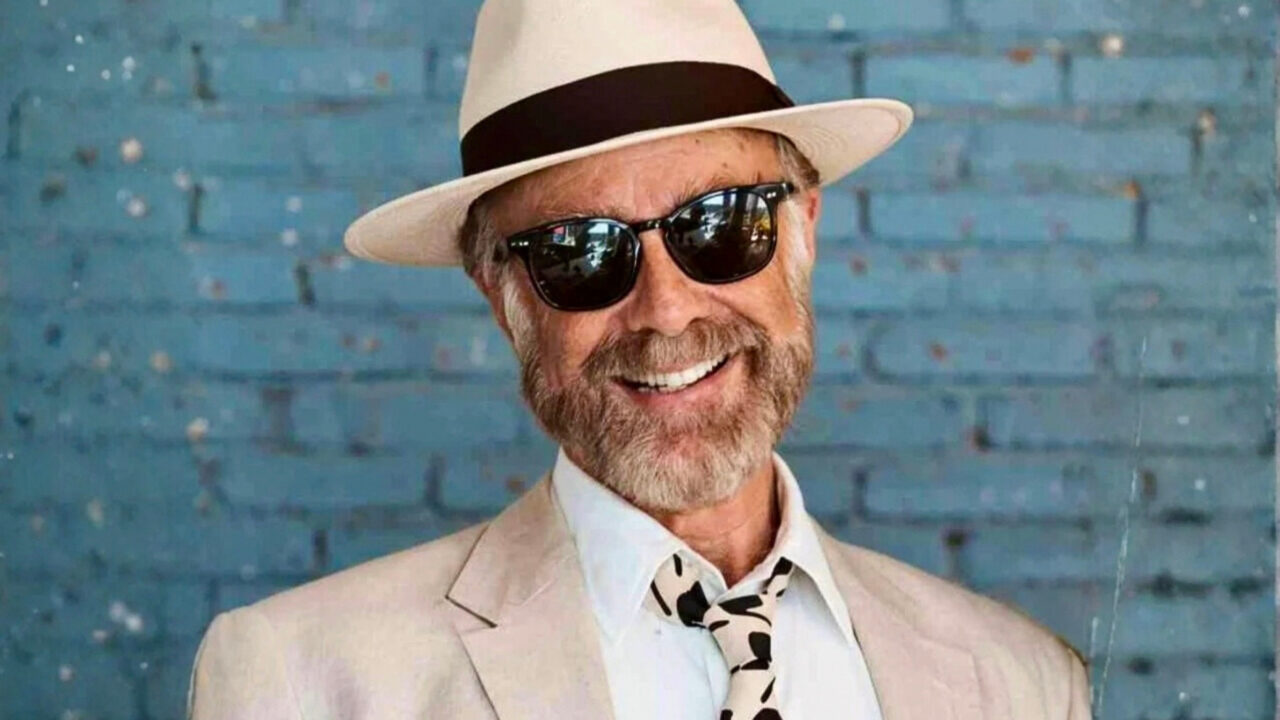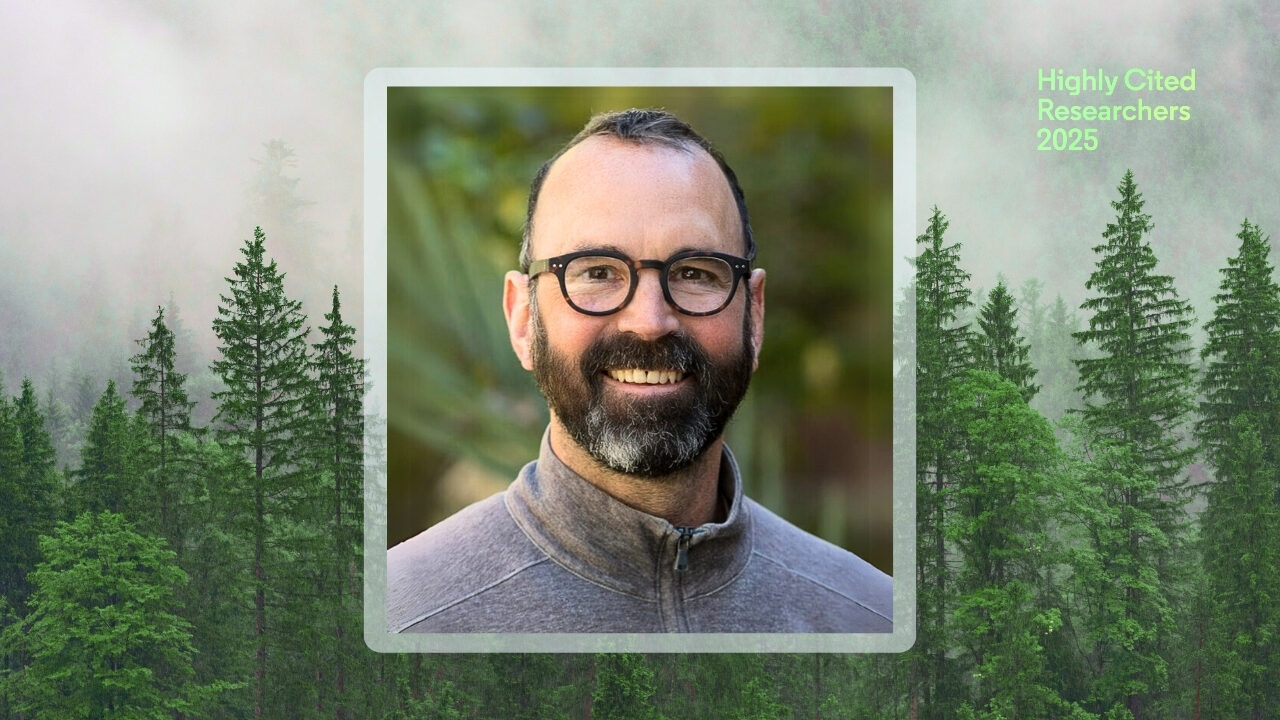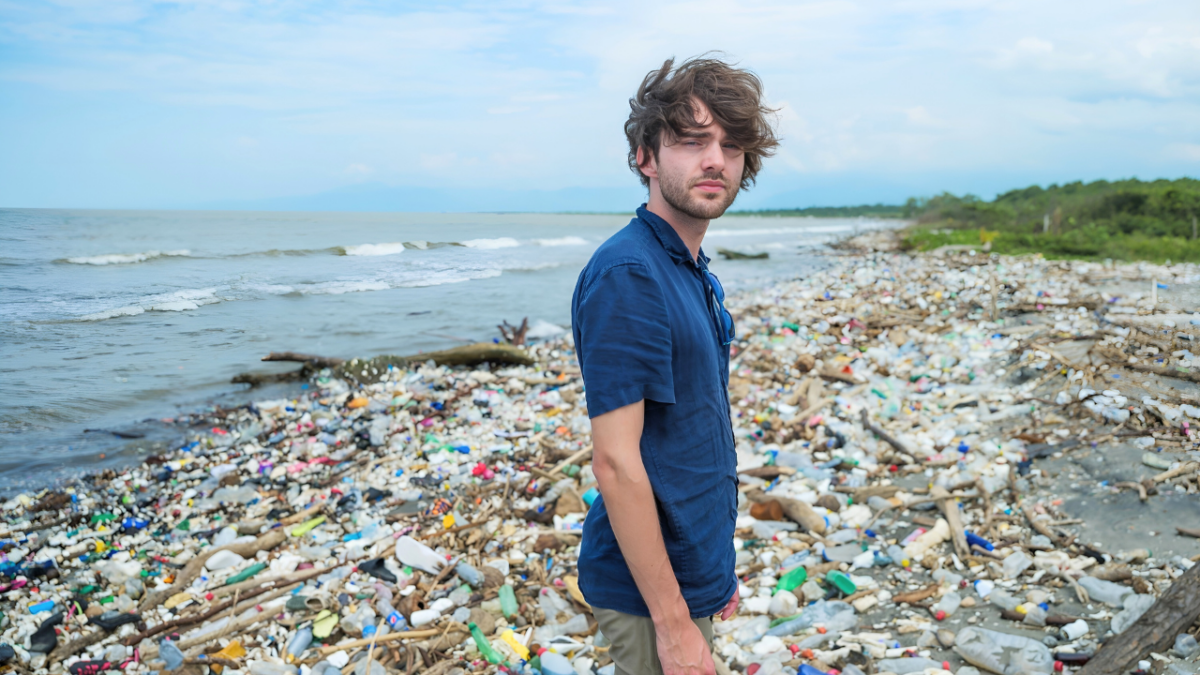
Meet the 2024 Pritzker Environmental Genius Award Candidates #6-10
Blending traditional strategies with new technologies, the second set of candidates for the 2024 Pritzker Emerging Environmental Genius Award integrate gender equality and Indigenous knowledge for climate action, take on…
In a time when environmental challenges demand creative solutions, these leaders are redefining how we address climate change, ecosystem restoration and resource management.
Blending traditional strategies with new technologies, the second set of candidates for the 2024 Pritzker Emerging Environmental Genius Award integrate gender equality and Indigenous knowledge for climate action, take on water scarcity and clean ocean debris across the globe.

Adenike Oladosu Titilope, climate researcher, ILeadclimate Action Initiative
Climate change disproportionately affects vulnerable populations, including women in developing regions who are often on the frontlines of environmental degradation. Oladosu Adenike Titilope, a Nigerian eco-feminist and climate activist, amplifies these voices and addresses gendered impacts of climate change across Africa.
Adenike is the founder of the I Lead Climate movement, where she works to connect the dots between environmental sustainability, gender equality and social justice. She has organized climate strikes across West Africa and worked with international organizations like the UN to advocate policies that recognize the intersectionality of climate issues. Through her efforts, Adenike brings global attention to the disproportionate effects of climate change on women and has calls for inclusive solutions that empower them as agents of change.
Adenike’s process is deeply rooted in community engagement and education. She has organized workshops, climate action trainings and grassroots campaigns to equip young women with the knowledge and tools to lead climate initiatives in their own communities. Her efforts not only raise awareness about the climate crisis, they mobilize a generation of young African women to act.
Looking ahead, Adenike aims to grow her movement to further integrate gender perspectives into climate policies nationally and internationally. Her goal is a world where women are not just victims of climate change, but leaders in the fight against it, driving sustainable development and resilience in their own communities.

Ryan Reed, program director, FireGeneration Collaborative
Wildfires continue to grow more destructive — in 2023 alone, over 7 million acres burned across the United States, presenting an urgent need to rethink approaches to land management. Ryan Reed, a member of the Karuk, Hupa and Yurok tribes of Northern California, champions the revival of Indigenous fire practices that helped sustain ecosystems for generations.
Reed is co-founder and program director of the FireGeneration Collaborative, an organization dedicated to restoring the traditional fire management techniques of Indigenous peoples. These methods, often referred to as cultural burns, involve the careful use of fire to manage forests, reduce fuel loads and promote biodiversity. Under Reed’s leadership, the collaborative reintroduces these practices and advocates for their integration into broader land management policies.
Reed shaped successful collaborations with federal and state agencies, resulting in policy shifts that recognize and incorporate Indigenous methodologies in mainstream land management strategies. Reed also prioritizes education and outreach, conducting workshops and seminars that highlight the ecological and cultural importance of fire, fostering greater public understanding and support for proactive fire management.
Reed is committed to healing the land and his community, working to rectify the historical erasure of Indigenous knowledge in environmental stewardship. He aims to expand the reach of the FireGeneration Collaborative, advocating for policy reforms and increased funding to support community-led fire management programs nationwide. Through his leadership, Reed lays groundwork for a more culturally inclusive and fire-resilient world.
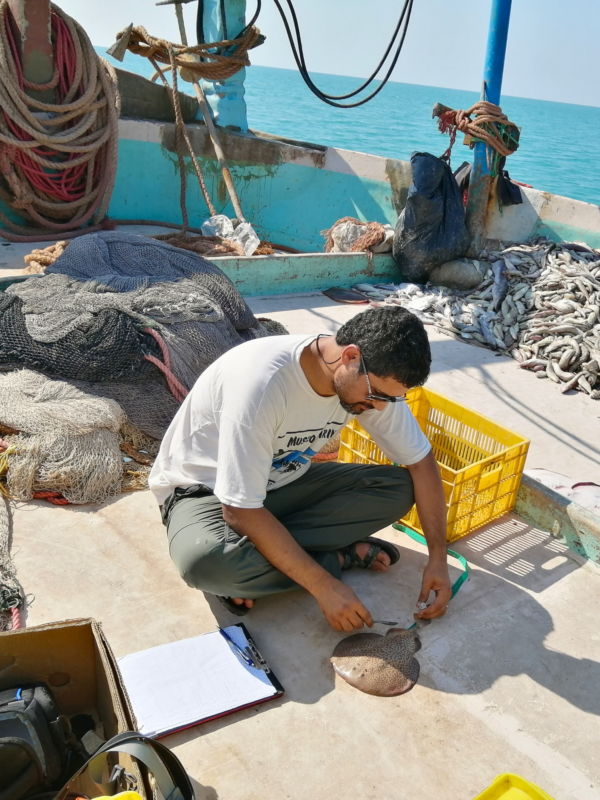
Mohsen Rezaie-Atagholipour, founder and director, Qeshm Environmental Conservation Institute (QECI)
The Persian Gulf, one of the most biologically diverse marine ecosystems, faces increasing threats from overfishing, habitat destruction and climate change. Rezaie-Atagholipour is the founder and director of the Qeshm Environmental Conservation Institute, where he has been at the forefront of efforts to study and protect elasmobranchs — the group of cartilaginous fish that includes sharks, rays and skates.
His work has been instrumental to filling knowledge gaps about these vulnerable species in the gulf, where scientific research is often hampered by political and logistical challenges. Conducting extensive field studies and working closely with local fishing communities, Rezaie-Atagholipour developed conservation strategies that are both scientifically sound and culturally sensitive.
Rezaie-Atagholipour also plays a pivotal role in the development of national and regional policies aimed at curbing the overexploitation of marine resources. His efforts raise awareness about the plight of sharks and rays in the Persian Gulf and led to tangible conservation outcomes, such as the establishment of marine protected areas and the implementation of fishing regulations.
Beyond research and advocacy, Rezaie-Atagholipour maintains a deep commitment to education and capacity-building. He trains a new generation of Iranian marine biologists, fostering a growing community of researchers dedicated to the preservation of the Persian Gulf’s biodiversity. Through his commitment to marine conservation, Rezaie-Atagholipour is making a lasting impact on one of the world’s most important yet fragile ecosystems — in a region often overlooked in global environmental discourse.
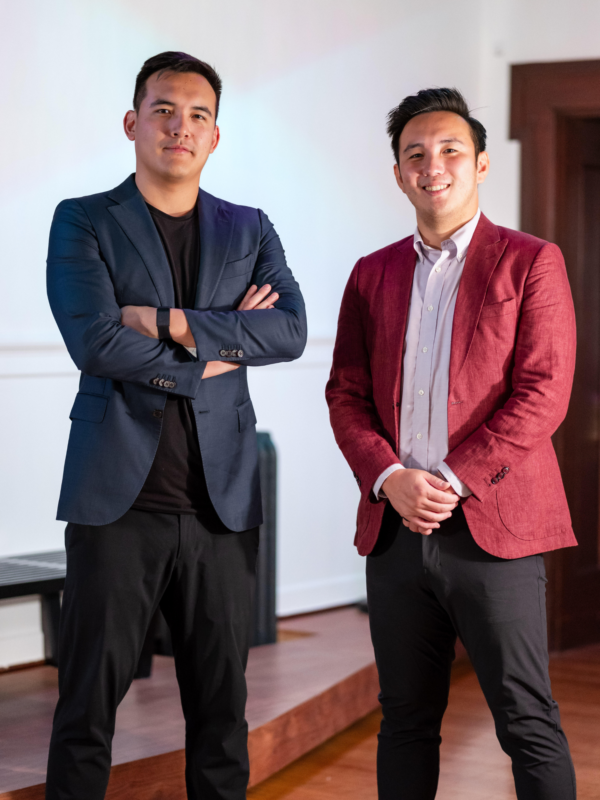
Brian & Eric Sheng, co-founders, Aquaria
Brian and Eric Sheng are transforming access to water supply as climate change continues to reduce water availability. The Earth’s atmosphere contains approximately 37.5 million billion gallons of water, yet many communities lack reliable access to clean drinking water. Recognizing this paradox, the Sheng brothers co-founded Aquaria to harness atmospheric water and make it accessible at a community scale.
Aquaria has developed atmospheric water generation technology that can produce up to 500 liters of pure water daily using only air and sunlight. Their flagship products, including the Hydropixel and Hydropack series, are designed to serve communities at scale. The company has already secured $5 million in funding from top investors like Bow Capital and Soma Capital, and has signed $26 million in contracts to supply water to over 1,300 homes in Hawaii. Aquaria’s impact extends beyond technological innovation — it puts power back in the hands of communities, supplying water to more than 15,000 people across 30 countries.
Unlocking secure water access from the air, Aquaria redefines the future of water infrastructure and offers a sustainable solution to one of the most pressing challenges of our time. Looking ahead, the Sheng brothers aim to provide clean water access to one million people within the next decade while reducing plastic waste by an estimated seven billion bottles, positioning Aquaria as a critical player in the effort to combat water scarcity.
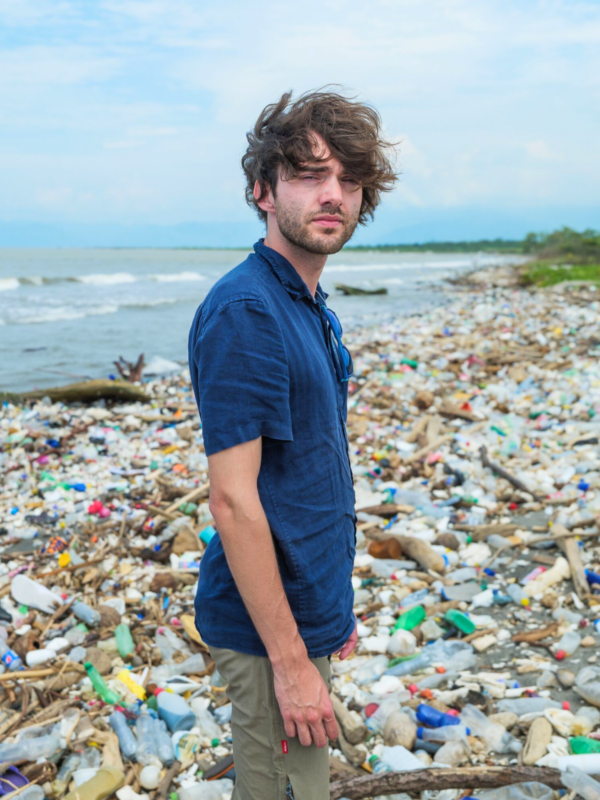
Boyan Slat, founder and CEO, The Ocean Cleanup
Oceans are suffocating under the weight of more than 5 trillion pieces of plastic, a crisis that threatens marine life, ecosystems and human health. At the age of 18, Boyan Slat founded The Ocean Cleanup, a nonprofit organization that aims to remove 90% of floating ocean plastic by 2040.
Slat’s approach to ocean cleanup is grounded in engineering, with a focus on designing advanced technologies that can efficiently remove plastic debris from the ocean. The Ocean Cleanup’s project System 002, has successfully demonstrated the ability to capture large amounts of plastic waste from the Great Pacific Garbage Patch, a vast accumulation of debris located between Hawaii and California. The success of this initiative propelled Slat and his team to plan for an even larger system, System 003, which aims to scale up operations and make a significant dent in the amount of plastic polluting the world’s oceans.
Slat has also spearheaded efforts to tackle plastic pollution at its source. The Ocean Cleanup’s “Interceptor” project focuses on removing plastic from rivers before it reaches the ocean, targeting the world’s most polluted rivers. This dual approach — cleaning up existing plastic and preventing new plastic from entering the ocean — demonstrates a comprehensive vision for solving the marine plastic crisis. Slat is committed to expanding The Ocean Cleanup’s operations globally, with plans to deploy more Interceptors, refine ocean cleanup systems and turn the tide in the fight against ocean plastic pollution.


